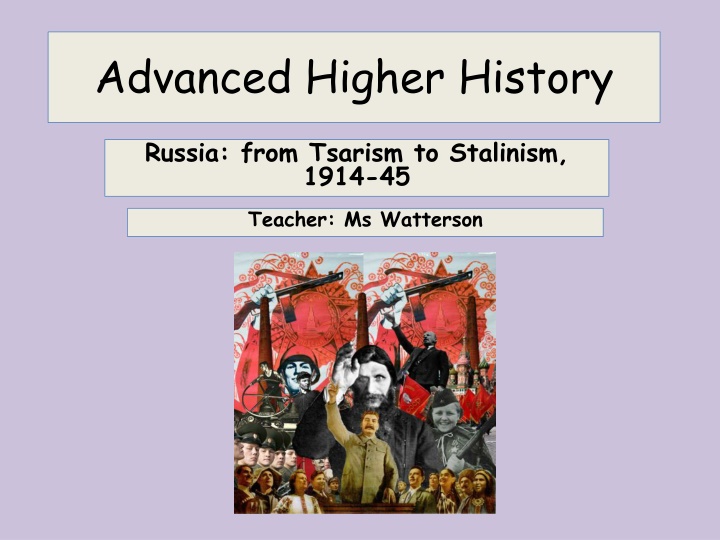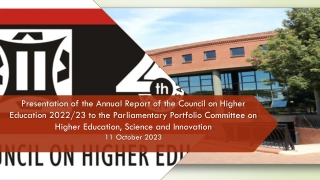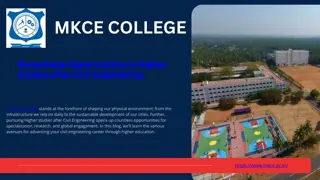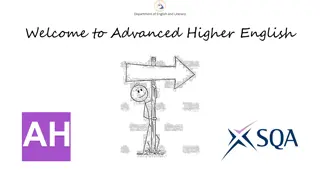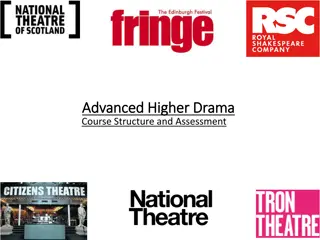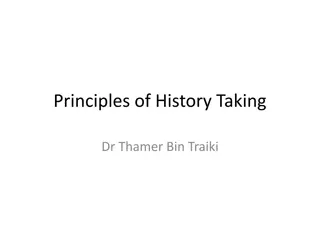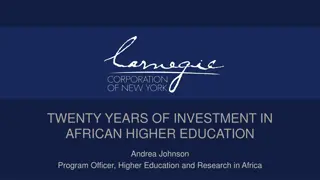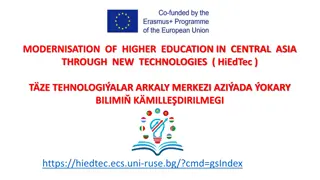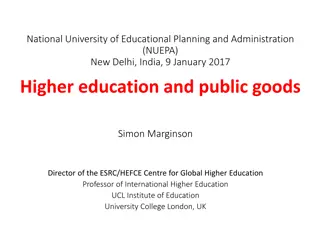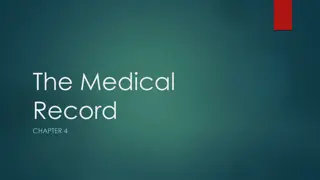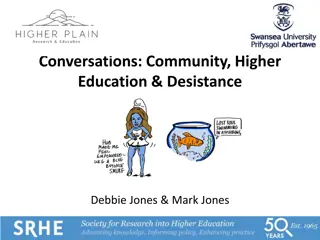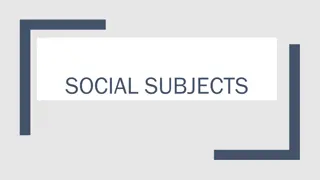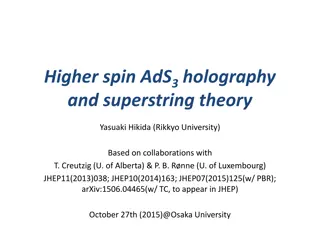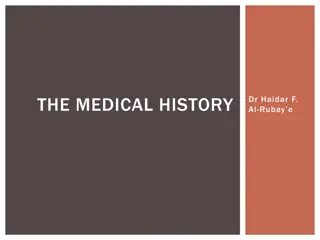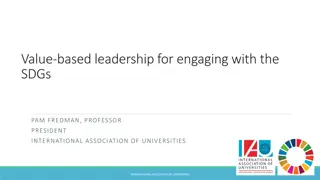Advanced Higher History
The "Advanced Higher History: from Tsarism to Stalinism, 1914-45" course is assessed through a SQA exam and dissertation. Course content can be found in textbooks, notebooks, Teams, and online resources. Class assessments and homework are integral parts of the course, including timed essays and source questions. The dissertation requires individual research and writing. Students are encouraged to prepare for the Prelim by engaging in regular revision and utilizing class notes and past papers. Providing support and guidance to students in their coursework and exam preparation is essential.
Download Presentation

Please find below an Image/Link to download the presentation.
The content on the website is provided AS IS for your information and personal use only. It may not be sold, licensed, or shared on other websites without obtaining consent from the author.If you encounter any issues during the download, it is possible that the publisher has removed the file from their server.
You are allowed to download the files provided on this website for personal or commercial use, subject to the condition that they are used lawfully. All files are the property of their respective owners.
The content on the website is provided AS IS for your information and personal use only. It may not be sold, licensed, or shared on other websites without obtaining consent from the author.
E N D
Presentation Transcript
Advanced Higher History Russia: from Tsarism to Stalinism, 1914-45 Teacher: Ms Watterson
How is the course assessed? SQA Exam 90 marks (64%) 3 hours 2 essays 3 source skill questions Dissertation 50 marks (36%) completed in class/at home
Where can course content be found? Textbook: The textbook is the main source of information. Students have access to hard copy and a digital copy of this on their iPads. Notebook: Class work and course information can be found on the Notebook app. Students have the choice between completing work on Notebook or in a jotter. Teams: Links to relevant articles/websites/podcasts are posted on Teams for students to access. Books/Internet: There is a large amount of books available in class for students to borrow. Some books and articles can also be found online using Google Books.
Class Assessments/Homework Class Assessments: There is a timed essay at the end of each of the topics. There will also be timed source questions throughout the year. Homework: Homework is a mixture of reading, preparation for essays, preparation for source questions and the on-going dissertation task. Dissertation: Started in September. Final copy submitted by the end of March (see next slide)
The Dissertation The AH dissertation is a 4000 word piece of individual research and writing which we began in September. All pupils have been asked to choose a question and should have written at least an introduction and two main chapters by now. The dissertation will not be marked in school but students will be provided with feedback throughout the year. The final piece will be due at the end of March. Pupils are encouraged to ask family members/friends to read over their dissertation to check for grammatical errors. A detailed description of what is entailed can be found on the SQA website and in the students Notebooks.
The Prelim The Prelim will consist of unseen essay questions and source questions based on the elements of the course that we have covered so far. To prepare for this, students should engage in regular revision. They should use class notes, the textbook, previous essays + essay plans, previous source questions and SQA past papers and marking instructions. They should look carefully at their feedback record (found in their Notebook) in order to identify what they need to improve on. Some students find making mind maps or flashcards helpful. Others will benefit from practising exam style questions. They need to pay particular attention to remembering detailed statistics and examples from the course as well as relevant examples of historiography for each topic.
What can you do to help? Ask your young person about key topics e.g. February Revolution, October Revolution, Civil War, Stalin Look out for documentaries on Russian history (there are quite a few on BBC iPlayer and Netflix) Encourage your young person to stick to the agreed deadlines or ask for an extension if necessary. Read over practice essays and dissertation chapters and tell them if anything doesn t make sense to you as the reader. Encourage your young person to create revision materials. Quiz students on the thoughts of different historians (they should be able to provide you with key names and ideas for every topic)
Further Support Staff: Students can ask Ms Watterson for support either in person or via Teams. They can also post more generic questions to the Teams page for either the teacher or their peers to answer. SQA: SQA past papers + marking instructions are available on the SQA website. The Understanding Standards website also provides good exemplar answers.
